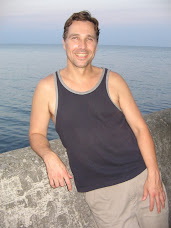Dec 13, 2011
This week my newest book, Lake On The Mountain, is going to press. For a writer, that's the equivalent of being in a plane and taxiing down the runway. You're not quite airborne, but your seatbelt is snug and all the expectation is there.
The timing was propitious. Last month LOTM received a positive pre-review in Publisher's Weekly, the bible of the American publishing industry. A single glowing sentence from that review will now end up on the book's cover along with a blurb by Gail Bowen, one of Canada's most delightfully audacious writers and author of the highly successful Joanne Kilbourn mysteries. Both of these are great coups and the sort of thing writers and publishers dream of.
As with any journey, there's an anticipated place of arrival down the road. For me, as for most writers, that hoped-for destination is one of undying fame, financial success beyond my wildest dreams, and outrageous adulation from my readers. It's called "Dreamland." Few, if any, writers reach it in their lifetime, however, so in the meantime I've learned to enjoy the journey. Duty Free shopping, here I come.
Lake On The Mountain, the tale of a gay missing persons investigator and father of a teenage son, is a bit of a departure for me in one way, yet in another it's precisely where I've been heading for years. I intended it to be that rare, some would even say "apocryphal" animal, the literary-thriller.
Like most university-educated Canadians of my generation, I was raised to be a bit precious in my reading. Genre? Not for me. Nicht, nein, never. It was verboten! I sniffed my way through the romance section in bookstores. I didn't deign to crack open a mystery or a sci-fi book, what with all the wonderful CanLit novels to be read.
So how ironic to find myself the subject of genre discrimination. My first novel, A Cage of Bones, was refused by just about every publisher in Canada. Not because it wasn't well written or literary, but because it was in a genre barely acknowledged at the time: GayLit. In fact, I had to find a publisher outside the country to take it on. For all our literary affectations, Canadians were decidedly behind the times on that one. Not that I minded having a UK publisher first time out of the gate, however. They turned it into an international bestseller, something many Canadian publishers could not have done for me.
Learning I'd inadvertently become a genre writer made me see things differently. One day I picked up a copy of John LeCarre's The Spy Who Came In From The Cold, wondering if it would be even half as good as the film. In fact, it was terrific. But I was suspicious. Should I admit I'd read it? Should I worry it might influence my writing?
Since then I've come across a considerable number of genre books and writers I feel can hold their heads up to anything being written today. Not to mention the success they achieve. In fact, you're far less likely to die the death of a starving artist if you can write outside the literary arena than in.
Ironically, the snobbery I've faced over genre writing has been a double-edged sword. Some of the most blatant discrimination has come from genre-philes who refuse to accept that a literary writer could or should make the cross-over. Our territory—keep out, is how they seem to think of it.
One of my most telling experiences came when I participated in a mystery writers' seminar in New Orleans, not long after the publication of my satirical thriller, The P-Town Murders. I talked about the difference between writing mysteries and literary fiction. At the time, I was set to publish my literary novel, The Honey Locust. Set in the Bosnian War, THL had taken me more than a decade to finish. I'd struggled with it greatly and certainly didn't want to have to repeat the effort. "The formula for writing mysteries is easier," I confided to my genre-loving audience, who gasped.
Apparently the F-word is about the worst thing you can say to a genre writer. "Where is this formula? Can I buy it somewhere?" snarled one curmudgeonly old fellow, who turned out to be a seasoned American mystery author. "Try Walgreen's," I suggested. "Second shelf on the right."
In fact, all good writing is based on a formula. Agatha Christie used one and so did Shakespeare. If you want to argue with them, grab a Ouija board and do your best. I can't help you there.
In the meantime, here I sit on the runway, waiting for my fifth title to be released. I no longer worry whether my books are considered genre or literary or something as yet uncategorized. It's a book. And I believe it's the best one I've written. Years from now, I may still believe it. I know that because of how proud I am of it and how right it seems when I re-read it.
I can feel the plane lifting.






No comments:
Post a Comment